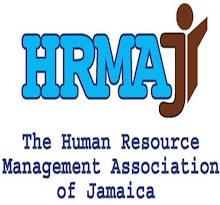A new study suggests something you may
have already suspected: keeping a bad employee around has a far greater effect
than hiring a superstar. As an HR manager this means that you can do more to
help your company by removing low performers.
In a recent article on Strategy +
Business blog, Matt Pamquist pulled together research from a recent study
published by the Harvard Business School Strategy Unit. It showed that apart
from the obvious costs such as pilferage and sexual harassment, bad employees
also detract from the performance of others. They take a toll on workplace
morale, customer retention and people's attitudes. The study showed that
"the higher the number of toxic colleagues surrounding a particular
employee - even one not predisposed to bad behavior - the more likely it was
that the worker would follow a destructive path." In other words, their
toxicity is contagious.
Furthermore, the study also showed that
replacing a toxic employee had twice the impact that replacing an average
employee with a superstar had.
Lastly, it showed that toxic workers are
sometimes skilled at appearing productive. They know what to do to generate a
lot of activity that appears to the casual observer to be a reflection of hard
work. The hidden truth is that, in the end, they do not help the company
because their bad behaviour counteracts any positive effects. For example, the
rogue trader who costs Grace Kennedy some US$20m in profits in 2010 was, from
all appearances, a high performer. His early removal would have made a gigantic
difference.
Consider these facts carefully. They
shed new light on a persistent complaint surrounding many HR managers. CEO's
tell me that they would like to intervene with toxic low performers but can't.
Over the years, their managers have given these low performers glowing reviews.
These false appraisals add up over time to paint a picture of someone who is
doing well, when the opposite is true.
Due to our labour laws (which are echoed
in the rest of the Caribbean), it's hard to fire someone without a documented,
just cause. Here's my interpretation: weak HR leadership makes it impossible
for the company to do what every viable enterprise must do to remove low
performers.
Think of a top football club. There is
universal recognition that arrivals and departures are a part of the system, a
requirement to become a great unit. This is probably very different from the
popular thinking in your organization, which sees itself as a
"family."
It's an unfortunate metaphor. It paints
the picture of lifelong blood relationships that isn't real, instead of a
temporary coalition of high performers who happen to share a single goal for a
limited time.
At the end of the day, this accumulation
of mediocre talent must be seen as the responsibility of Human Resources, the
only organization who can see the long-term, bigger picture and has the means
to do something about it. Think of it... if your company isn't a world-class
performer, but boasts of low turnover, it might be an indication that you are
coddling toxicity without being aware of its consequences.
Francis Wade is the founder of
CaribHRForum, an author and management consultant.



No comments:
Post a Comment